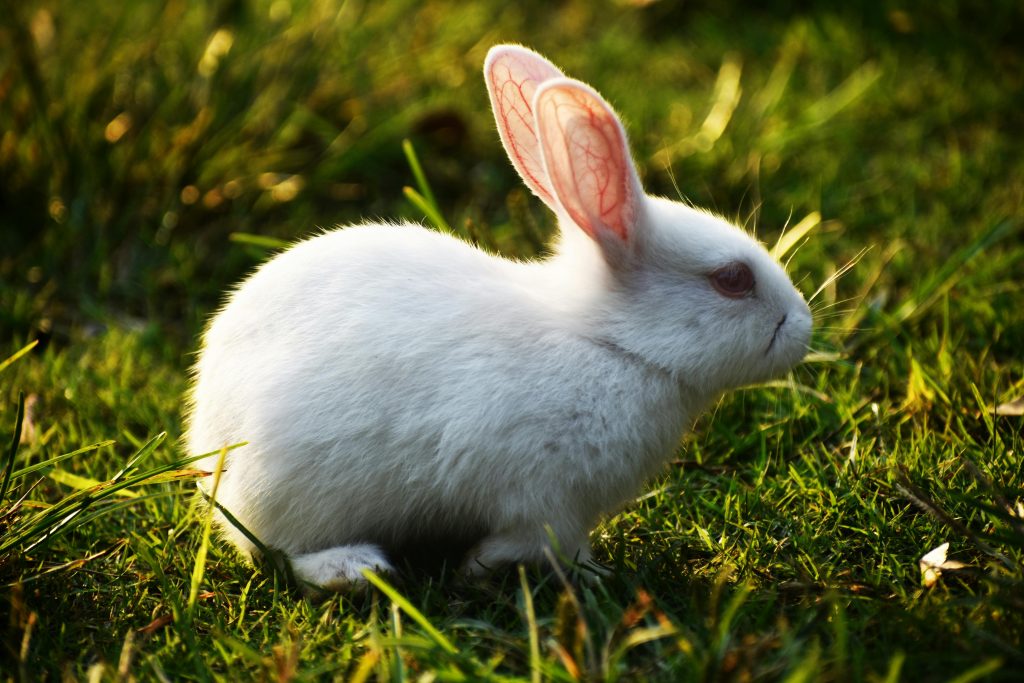Rabbit farming has emerged as a highly promising and lucrative livestock venture in Nigeria and across Africa, offering an attractive opportunity for investors.
With its remarkably high returns on investment, minimal startup capital, and low operational expenses, rabbit farming is an enticing business proposition. As highlighted by the Food and Agriculture Organization (FAO), rabbits boast an exceptional feed-to-meat conversion efficiency, making them an ideal choice for meat production. Furthermore, Nigeria’s rapidly growing population has fueled a surge in demand for protein-rich animal products, positioning rabbit farming as a profitable investment option.
Things you must know before starting your rabbit farm.
1. Reproduction: Rabbit is a prolific animal, that is, it produces offspring abundantly. One amazing factor of rabbit reproduction is how fast they get around to breeding, and how often they can do it. The average rabbit reaches sexual maturity at 3- 8 months. Their breeding season lasts three-quarters of the year, and the does (female rabbit) don’t have an estrous or “heat” cycle. They’re more or less ready to mate all the time. Does can have up to 40 kits in a single year, so beginning a rabbit farm with two mature rabbits (one male, one female), a rabbit farmer could end up with 40 rabbits in the span of one year.
2. Feeding: Rabbits are herbivores, meaning that their diet is primarily composed of plants and vegetables. There are a variety of foods you can feed your rabbit which will provide them with the protein they need to live healthy lives. Examples of what you can feed your rabbit are grass such as hay or alfalfa, carrots, spinach, green beans, banana and lettuce. Concentrates can also be given to them. Concentrate is better given to the rabbits in the morning while forage should be fed in the late afternoon. Rabbits can be given poultry’s grower mash in absence of pellet but this should be sprinkled with water to prevent wastage and nasal irritation.
3. Breeding stock: when starting your rabbit farm endeavor to get your breeder stock from reputable farms. There are different breeds of rabbits for different purposes. Below are the different breeds of rabbit.
⦁ California white
⦁ New Zealand white
⦁ New Zealand red
⦁ Chinchilla
⦁ Dutch
⦁ Hyla
California White
* Very adaptable and productive breed.
Good for smallholders.
* Excellent meat quality and good size. Heat tolerant.
Chinchilla Rabbit
* Robust breed with high reproduction rates. Excellent fur quality.
* Good for both small and large producers targeting fur and meat.
Flemish Giant
* A very large breed provides substantial meat yields per animal.
* It withstands heat but requires quality housing and feeding. Better for commercial production.
New Zealand White
* Large size, fast growth rate, and good meat quality Withstand heat.
* Widely available. Good for commercial meat production.
5. Housing: Building good rabbit housing for your rabbits is a basic requirement for success in rabbit farming .
As a result, you must ensure that the rabbit house you build is conducive enough for the animal.
6. Marketing :
⦁ Identify target markets (local, urban or export)
⦁ Develop a marketing strategy (social media, advertising, etc)
⦁ Establish relationships with buyers and suppliers
⦁ Consider value addition (processing, packaging, etc.)
7. Challenges and Solutions
⦁ Predators: Use secure cages and protective measures
⦁ Diseases: Implement biosecurity measures and consult a veterinarian
⦁ Feed costs: Explore alternative feed sources and cost-effective options
⦁ Market fluctuations: Diversify markets and develop a contingency plan.
Conclusion
Rabbit farming in Nigeria can be a rewarding venture with proper planning, care, and management. Start small, learn continuously, and adapt to challenges to ensure success.
Additional tips:
– Join rabbit farming associations for support and networking
– Attend workshops and training sessions for knowledge sharing
– Consider starting with a small herd and scaling up gradually.

